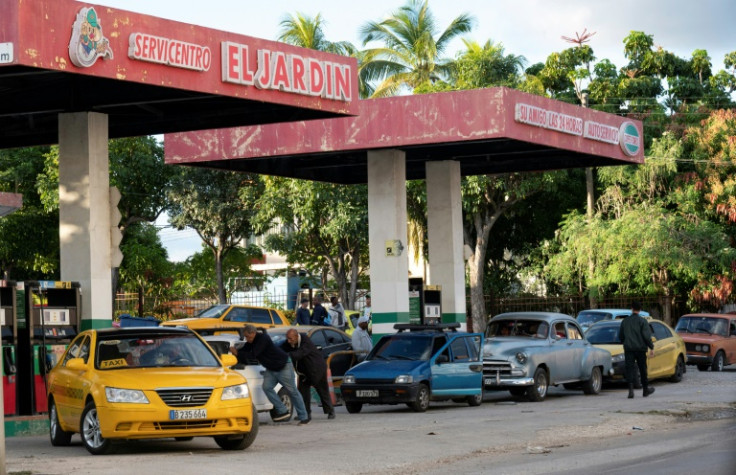
Cuba's government on Wednesday delayed a planned 500 percent surge in the fuel price after a "cybersecurity incident," an economy ministry official said.
The communist island's cash-strapped government had announced the five-fold increase with effect from February 1, as part of a series of measures seeking to cut its budget deficit.
Economy ministry official Mildrey Granadillo said there had been a "cybersecurity incident ... whose origin has been identified as a virus from abroad."
She did not give a new date for the planned increase.
The cost of a liter of regular gasoline is to rise from 25 pesos (20 US cents) to 132 pesos, while the price of premium gasoline will jump from 30 to 156 pesos, the government said earlier this month.
The nation of 11 million people is experiencing its worst economic crisis since the collapse of the Soviet bloc in the 1990s due to consequences of the coronavirus pandemic, the tightening of US sanctions in recent years, and structural weaknesses in the economy.
According to official estimates, the Cuban economy shrank by two percent in 2023, while inflation reached 30 percent. Independent experts say this is likely an underestimation.
Fuel and other basics are already hard to come by.
Cuban drivers had been waiting Wednesday in long lines to fill their tanks before the measure was implemented.
Lorenzo Castillo, 57, said he feared a "domino effect" and further inflation.
"If a taxi cost me... 1,000 pesos, now it might cost me two or three thousand, I don't know."
Authorities have also ordered that tourists pay for fuel in foreign currency.
The price of electricity is planned to increase 25 percent on March 1.
The government subsidizes almost all of the basic services and goods consumed by Cubans.




